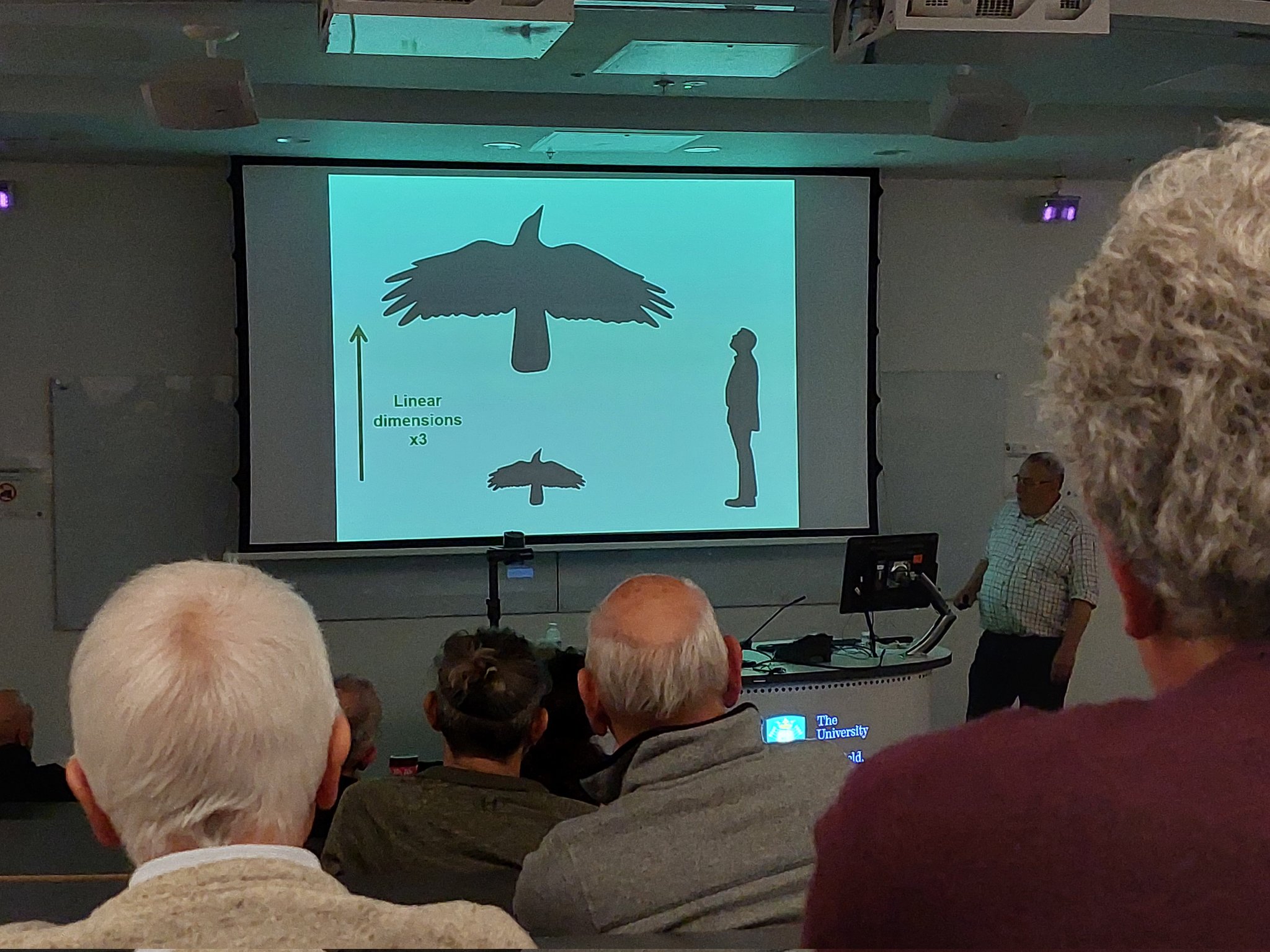There's been a lot of chitchat recently (well, a couple of surveys and the odd article, including Keith Betton's excellent contribution in Birdwatch) about bird clubs and, specifically, their role and viability. Many of the reasons why bird and natural history societies were founded – for example, to create communities of like-minded people, to share sightings and meet to listen to talks – have been largely negated in the 21st century, most dramatically since the COVID-19 pandemic. Rightly or wrongly, in a digital world where many aspects are replicable online, do bird clubs still serve a point?
Over the past few years, I have sat on two different bird club committees: Leicestershire and Rutland Ornithological Society (LROS) and the Isles of Scilly Bird Group (ISBG). Both operate in different ways with differing objectives, although the one huge similarity is the admirable hard work that committee members put in to make their organisations fly. For some voluntary individuals, the tasks of admin, recording and surveying, bookkeeping, organising talks, walks and events, writing newsletters, managing social media and websites, and pulling together an annual bird report can equate to multiple full-time jobs.
And while it's encouraging that many bird groups seem to be expanding their overall memberships, it's not surprising that most are struggling to recruit members to their committees to take on tasks. With that in mind, I wonder if there could be more efficient and dynamic ways to organise bird clubs, especially with regard to online activities.

How can local bird clubs move forwards in 2023? Perhaps, suggests our columnist, one way is to move talks onto platforms such as Zoom, instead of in person (Jill Greenwood).
I'm a big fan of localness, but if I consider where I grew up in Leicestershire, without googling I can name eight different wildlife groups operating within roughly the same 50-km radius. This feels like overkill when you consider the amount of work involved in managing small groups and charities, a desire for voluntary expertise and the huge overlaps with the audiences. A few years ago, one lovely birder asked me to deliver the same talk to three different groups in the same locality; two took place in the same venue, and 75% of the audience was the same. No wonder they were all asleep the third time they heard it.
Joined-up thinking
With so many bird groups operating across the UK, pooling resources and sharing administration would surely lighten the load for many volunteers. I have felt endlessly guilty that I can't do more for my local bird clubs, but when I look at childcare, employment, trying to sustain a vaguely healthy lifestyle and occasionally going outside to maintain my sanity, it just isn't possible. LROS meetings are at 7.30 pm – that's bedtime for a four-year-old, and my priorities lie with The Gruffalo.
There is also a huge desire for expertise on committees. There are an awful lot of people who are very good at birds, but administration, IT, editing and events planning are specialist skills. I love doing media work for ISBG and we've landed national coverage twice, although it helps when an Egyptian Vulture or a Blackburnian Warbler turn up. For my sins, I also get tasked with such exciting duties as data protection, website and social media. Oh, and being the youngest person in the room, I've often been asked, 'how do we attract more young people?' The same goes for encouraging more women to take part, but there are real, societal barriers to participation that need to be addressed before different demographics will actively and comfortably get involved.
If more collaborative efforts could be made and the right structures put in place, it feels like the whole local group approach could be streamlined, while still retaining the community feel that makes it special. If talks are held on Zoom, they don't have to be strictly local. Conservation projects could cover bigger areas and be better funded. Volunteers could – collective gasp – even be paid! I marvel at the quality of the outputs of so many local groups, not least the Isles of Scilly Bird and Natural History Report (yes, I'm biased), but also worry about what will happen when the current editors step back. I hope that more amazing volunteers will step in, but if we are to retain this rich part of our natural history heritage, we may need to look at creative new ways of working.
- This column was originally published in the August 2023 issue of Birdwatch magazine.


